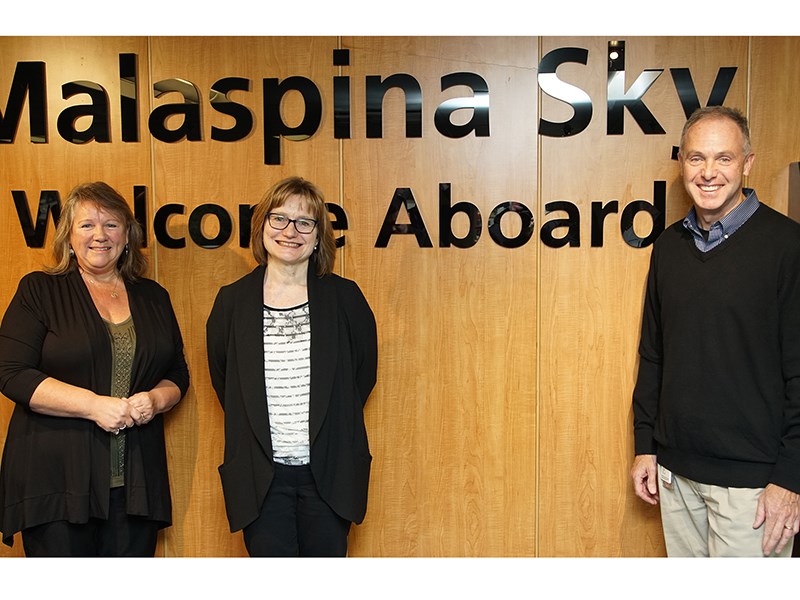BC Ferries has renamed the Island Sky ferry, serving the Saltery Bay to Earls Cove route, as the Malaspina Sky.
“The name Malaspina Sky highlights the northern Sunshine Coast, which is a beautiful part of our province,” said BC Ferries’ president and chief executive officer Mark Collins. “We understand changing the name of a ship is significant and wanted the community to be part of the change.”
The reason for the change in name is because next year, BC Ferries looks forward to welcoming two new Island-class ferries into service on the Powell River to Texada Island and Port McNeill to Sointula to Alert Bay routes. According to a news release from BC Ferries, these ships will each have their own prefix, in this case, Island, as the first part of the ships’ names.
The naming standardized convention is part of BC Ferries’ recognition of BC’s coastal environment and the communities it serves. BC Ferries expects that over time, it may have up to 12 of the standardized Island-class ferries in its fleet.
Malaspina Sky was officially renamed at a ceremony at Saltery Bay on Thursday, October 24, and Collins said the event is the first in a series of milestones, with the two new Island-class vessels scheduled to arrive in BC in early 2020.
“The new Island-class ships are efficient and use clean electric technology,” said Collins. “In BC Ferries’ transition to a lower carbon future, we are building electric ships whose hybrid technology bridges the gap to when shore charging infrastructure is available. From the exterior details to the engines, the design reduces underwater-radiated noise, lowers emissions and improves customer service.”
At the Saltery Bay ceremony, Collins said ships are rarely renamed. He said the tradition of naming ships goes back 3,000 to 4,000 years.
“You don’t deviate easily from these traditions,” said Collins.
He said he has a close bond with the ferry because it was the first big project he undertook when he joined BC Ferries in 2004.
“We had to conceive it from scratch,” said Collins. “I was there when this was literally a sketch on an envelope and scribbles on a napkin. It grew up into the beautiful ship we have today.”
Collins said that at the time the ferry was being built, it was known there was a good chance it would be a unique vessel in the BC Ferry fleet. To avoid confusion with the new Island-class ferries coming on stream, it was decided to give Island Sky a new identity.
“She’s likely to remain a unique identity in our fleet through her life,” said Collins. “I’m glad to see she’ll now be recognized with a unique name. Even if we are changing the name, we are not changing the personality and what the ship is to people.”
Linda Coomber, former senior chief steward on the vessel and the ship’s godmother, said the ship means a lot to her. She said she was in the shipyard when the vessel was being put together and served aboard the vessel for several years.
“The name is becoming of the vessel in that it’s such a beautiful route and there’s so much to see,” said Coomber. “I always said when I worked on this route it’s like working in a picture postcard.”
Northern Sunshine Coast ferry advisory committee chair Kim Barton-Bridges said she moved to Powell River in 1998 and was really pleased to see the Queen of Chilliwack move on and the Island Sky take over the route.
“She’s been a good ship, she’s been reliable, and part of what makes her super is all of her crew,” said Barton-Bridges. “I look forward to seeing her carry on.”
Collins said in a lot of ways, the community owns the ship.
“BC Ferries might operate it but the community owns it in so many ways,” he added. “The ships became part of the fabric of the community.”



